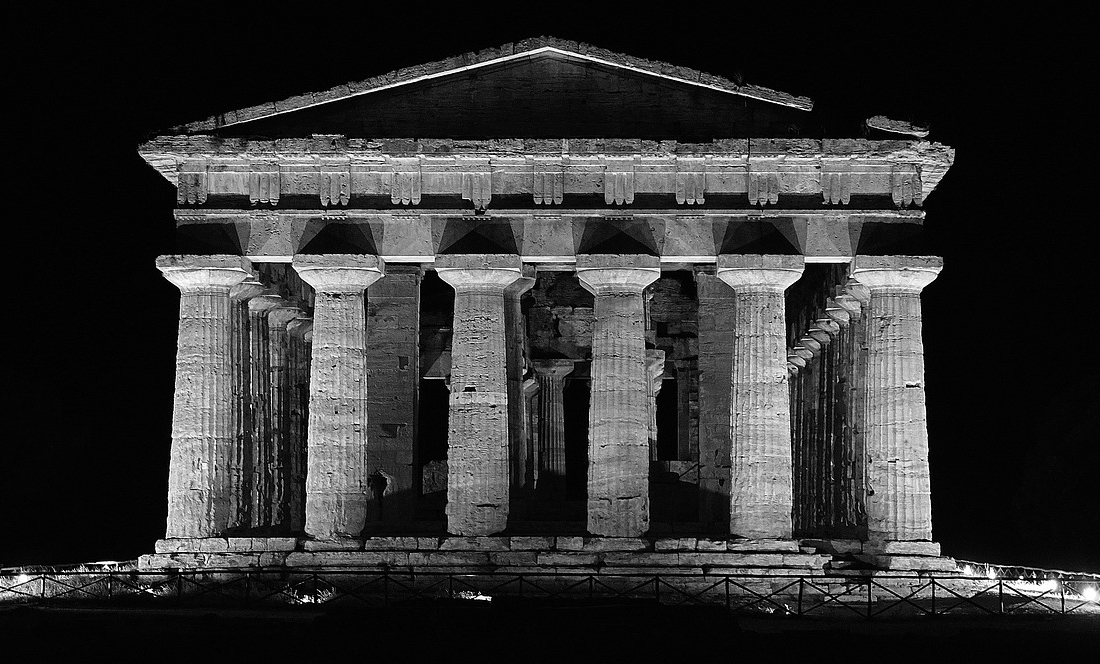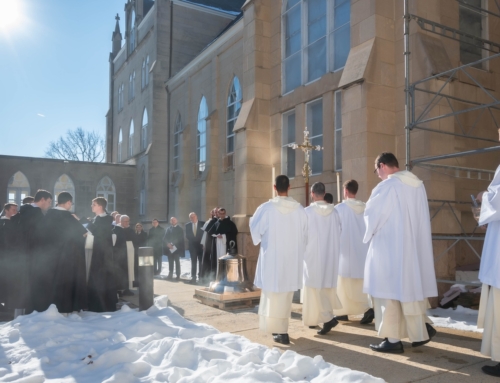Today would be Marcus Agrippa’s 2078th birthday, if he were still alive. The Roman General served as an aedile, supervisor of public building, during the reign of Augustus Caesar. Becoming an aedile was actually a step down for Agrippa, who had already held the higher office of consul. Yet is was his construction work as aedile that proved his most lasting legacy.
If you have been to Rome, chances are you have seen this inscription on the façade of the Pantheon with his name:
M.AGRIPPA.L.F.COS.TERTIVM.FECIT
Or, “Marcus Agrippa, son of Lucius,consul three times, built this.”
The Pantheon was completed during Agrippa’s time as aedile in 27 B.C., although the present structure was rebuilt during the reign of Hadrian in A.D. 126, with the inscription intact. The temple was dedicated to all the gods—just to make sure that no deity was left out of Roman worship.
Without the privilege of revelation, it is hardly surprising that Romans would be anxious to cover all their bases. The Athenians had a similar insurance policy: an altar to an unknown god. St. Paul attempted to introduce them to him:
“You Athenians, I see that in every respect you are very religious. For as I walked around looking carefully at your shrines, I even discovered an altar inscribed, ‘To an Unknown God.’ What therefore you unknowingly worship, I proclaim to you.
The God who made the world and all that is in it, the Lord of heaven and earth, does not dwell in sanctuaries made by human hands, nor is he served by human hands because he needs anything. Rather it is he who gives to everyone life and breath and everything. He made from one the whole human race to dwell on the entire surface of the earth, and he fixed the ordered seasons and the boundaries of their regions, so that people might seek God, even perhaps grope for him and find him, though indeed he is not far from any one of us.
For ‘In him we live and move and have our being,’ as even some of your poets have said, ‘For we too are his offspring.’ Since therefore we are the offspring of God, we ought not to think that the divinity is like an image fashioned from gold, silver, or stone by human art and imagination. God has overlooked the times of ignorance, but now he demands that all people everywhere repent because he has established a day on which he will ‘judge the world with justice’ through a man he has appointed, and he has provided confirmation for all by raising him from the dead,” (Acts 17:22-31).
Religion is a natural virtue. There is an inbuilt desire to worship God, although that desire can be suppressed. But on account of our fallen nature and inclination toward sin, man-made religious observances usually result in man worshiping himself.
The sort of knowledge of God required to worship him rightly can only be had through revelation. It is only because God came to us that we can return to him.
Our worship of God has been forever changed and heightened, because God himself became man. We have the most perfect form of worship, the Eucharist, because of Jesus. God provided himself as the lamb of sacrifice. Jesus serves as the one offering and one high priest in the wholly perfect sacrifice.
We have been introduced and made friends—and even brothers—to the once-unknown God. The One God whose perfection excludes all other gods. There can be only one.
Today Marcus Agrippa’s architectural achievement still stands, because it found its purpose. The pagan temple to all the gods is a Christian Church dedicated to the One God who exceeds everything we could imagine a god to be. Under the patronage of Santa Maria ad Martyres, Our Lady and the martyrs, the building built for the worship of many powerless gods is used to offer the Holy Sacrifice of the Mass.
Marcus Agrippa could not have imagined how successful his term as an aedile would be.
✠
Image: Juan Antonio Mosquera Casais, Pantheon Nocturno







